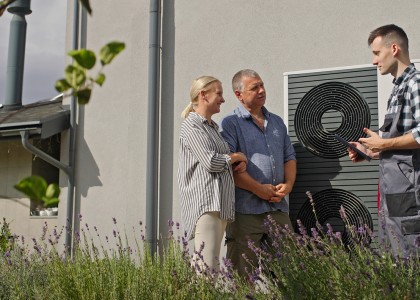Statement by Steven Nadel, executive director, American Council for an Energy-Efficient Economy (ACEEE):
“We are concerned about the new process announced today by the International Code Council (ICC) for setting model building codes. These codes, when adopted by state and local governments, play a key role in reducing the energy use and emissions of our homes and buildings. The ICC, which develops and publishes model codes, threw out the elections process by which state and local government officials recently overcame powerful commercial interests to secure large energy savings. Its board says the new process will deliver maximum energy efficiency that is ‘safe, technologically feasible, and life cycle cost effective.’ Now it needs to deliver on that promise. Only strong pressure from state and local officials committed to sustainability has made ICC deliver robust efficiency gains in the past. We will be watching and will hold the ICC to its stated interest in a balanced, fair process committed to the energy efficiency that is necessary to address the climate crisis.”
The International Energy Conservation Code (IECC), which ensures that new homes and commercial buildings in most states won’t needlessly waste energy, has been developed by an ICC committee on which (according to an agreement only recently made public) the National Association of Home Builders (NAHB), an organization representing part of the regulated industry, played a dominant role. But code officials and other state and local government representatives were able to use their voting power in a subsequent review to routinely stop amendments that would have weakened efficiency requirements. For two 3-year cycles, the code barely changed. In the most recent cycle, code officials mustered a required 2/3 vote to approve significantly greater energy savings.
Now, despite major concerns, the ICC Board has changed to a standard-setting process in which there is no final vote by government officials, and in which the committee needs a 2/3 vote for all significant decisions, including any progress on efficiency. But the Board for the first time announced a broader framework to “help communities address their energy efficiency and climate mitigation goals.” As part of this process:
- The code will have a new “intent” for maximum energy efficiency and increased energy savings each cycle.
- The NAHB will not have reserved seats on the new committee (though home builders could have a significant role). Government representatives will make up 1/3 of the committee. The ICC is to choose committee members who are experts and have demonstrated commitment to the above intent.
- Lifecycle cost effectiveness is a key criterion, with analysis to be provided by Department of Energy national labs.
- The ICC will provide tools for governments seeking to meet climate and sustainability goals, such as the new zero-energy homes and zero-energy buildings appendices to the code.
- A new Energy and Carbon Advisory Council is to identify goals, provide input on committee membership, and otherwise assist.
Steven Nadel said: “While these statements are notable, the ICC must follow through and go further. Key decisions that will affect the impact of today’s announcement remain ahead. In setting goals and cost-effectiveness parameters, the ICC should include a goal of zero-energy codes by 2030 and cost-effectiveness metrics that incorporate the time value of energy and the cost of carbon emissions.”
Nadel continued: “And most important will be the appointments to the development committees. The standards-setting process is designed to work out technical issues, not make political decisions. Committees that are ‘balanced’ between those opposed to change and those seeking climate solutions would collapse, unable to cross the 2/3 hurdle. The ICC will need to appoint diverse committees that are united in their commitment to large savings and oversee the new committees to make sure they keep on track. Only if the ICC Board breaks its deference to the NAHB and truly abides by its new energy efficiency and sustainability commitment can it meet our great need for reducing energy bills, making homes more resilient in the face of increasingly extreme weather, and combatting climate change.”



